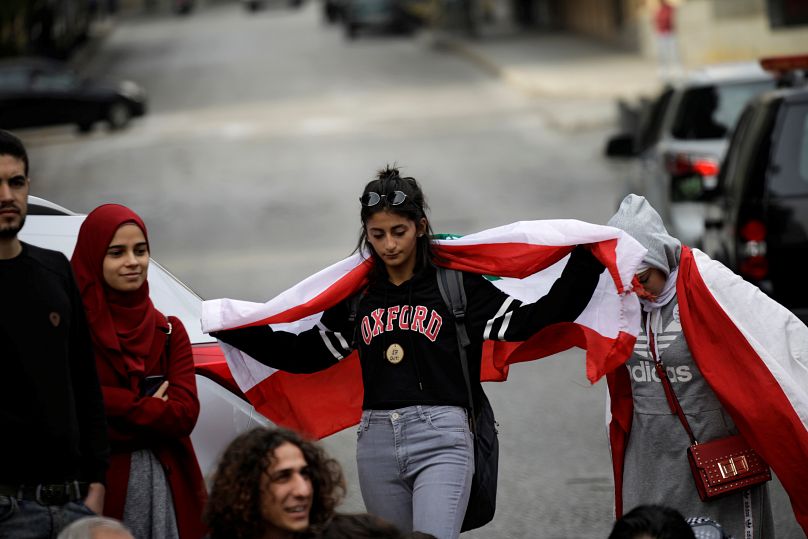Dozens were wounded late on Saturday as police clashed with anti-government protesters. It was one of the most violent confrontations since demonstrations began in October.
Street protests took a violent turn on Saturday leading to 54 wounded. It was one of the most violent demonstrations since the wave of protests started nearly two months ago.
Police forces fired rubber bullets and tear gas while protesters threw stones and small explosives. Demonstrators also tried to push through steel barriers blocking paths to the parliament and government headquarters.
The Lebanese Civil Defense and the Red Cross said they transferred 46 people to hospitals and treated the wounds of others on site.
There were several reports of people passing out due to heavy clouds of tear gas.
Hundreds of people had been marching in the capital as part of a movement against the ruling elite. Protesters claim that the Government steered the country towards an economic crisis.
Lebanon is facing the worst economic crisis since the 1975-1990 civil war, rooted in decades of state waste and corruption that has landed the country with one of the world's heaviest public debt burdens.
Demonstrators accuse politicians of milking the state for their benefit while the cost of living continues to rise. Prices have soared leading to a steep rise in unemployment and salary cuts. Banks have now restricted dollar withdrawals and blocked nearly all transfers abroad.
New tax plans and the record of sectarian leaders dominating the country since its civil war in 1975-90 also contributed to the public's growing anger.
The protests pushed Saad al-Hariri to resign as prime minister in October. However, talks to form a new cabinet have stalled with divided political parties failing to agree on Hariri's replacement.
On Friday Hezbollah's chief, Hassan Nasrallah said the group would keep pushing for a coalition government which conflicts with Hariri's plans to form a cabinet of technocrats. Negotiation talks between parliamentary blocs are planned for Monday.
The economy is in crisis as well. Prices have soared leading to a steep rise in unemployment and salary cuts. Banks have now restricted dollar withdrawals and blocked nearly all transfers abroad.












